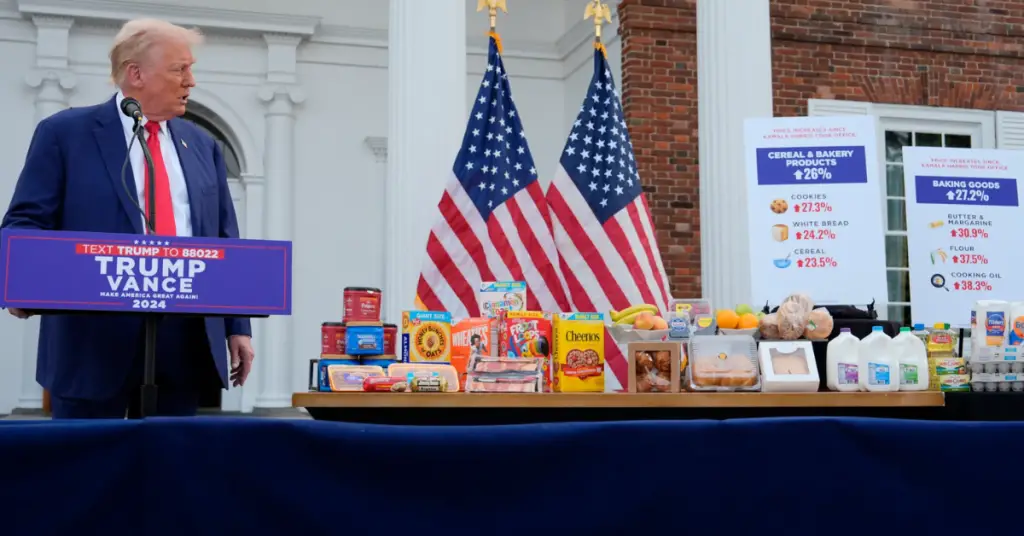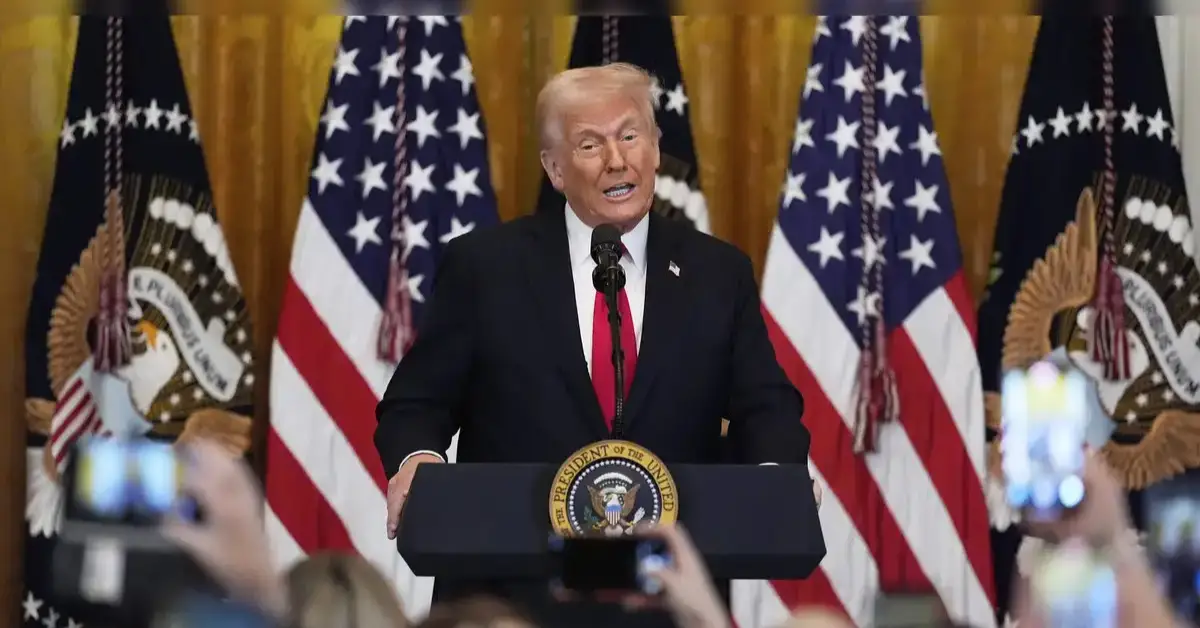President Donald Trump recently claimed that grocery prices are “going down” and “are down.” However, facts and data show that grocery prices have actually been on the rise, even before Trump imposed new tariffs earlier this month. Let’s take a closer look at what is actually happening with grocery prices and whether Trump’s claims hold up under scrutiny.
Trump’s most recent comments about grocery prices were made while he was criticising Federal Reserve Chair Jerome Powell. Powell had warned that Trump’s tariff policies could slow down economic growth and increase inflation.
In a social media post on Thursday, Trump argued that “oil prices are down, groceries (even eggs!) are down, and the USA is getting RICH ON TARIFFS.” This is not the first time Trump has made such claims, as he posted similar messages earlier this week, saying the U.S. is bringing in large tariff revenues and that the cost of almost all products, including gasoline and groceries, is falling.
According to the Consumer Price Index (CPI) data from March 2025, grocery prices have continued to rise. Average grocery prices were 2.41% higher in March 2025 compared to the same month in 2024. This was the highest year-over-year increase in grocery inflation since August 2023. Not only that, but grocery prices also increased by 0.49% in March 2025 compared to February 2025. This marked the highest month-to-month inflation rate for groceries since October 2022.
In February 2025, grocery prices were nearly the same as in January 2025. However, in March, grocery prices saw a noticeable increase. These higher prices came even before Trump decided to impose 10% tariffs on imports from most countries. The tariff was enacted in early April 2025, and while it is unclear exactly how much it will affect grocery prices, it is almost certain that they will rise further as a result.
It’s worth noting that some specific grocery store prices might have fluctuated, but on average, prices across the board have increased. And these price hikes took place before Trump reintroduced the tariffs. The potential for even higher grocery prices exists if Trump reinstates tariffs he had previously paused. These tariffs, if fully implemented, would likely lead to even higher costs for consumers. Now, let’s look at some of Trump’s other claims about inflation.

Trump did acknowledge a drop in oil prices. Indeed, oil prices have fallen slightly since Trump took office. However, many analysts argue that this decline in oil prices is partly due to concerns about the global economy.
Trump’s trade policies, including his tariff wars, have created uncertainties that could slow global growth and reduce demand for oil. In April 2025, U.S. retail gas prices have dropped slightly, going from $3.20 per gallon on April 1 to about $3.17 per gallon by April 16. However, gas prices have risen somewhat since Trump’s return to the White House, when they were around $3.12 per gallon in January 2025.
Egg prices are another area where Trump’s claims don’t line up with reality. In March 2025, the average price of eggs hit $6.23 per dozen, which is 25.7% higher than the average price in January. This surge in egg prices was largely due to an avian flu outbreak. However, wholesale egg prices have dropped since late February, so consumers may see lower egg prices in the near future.
Although Trump pointed to a small decrease in overall prices in March 2025 compared to February 2025, that decrease was minimal. The overall decline was just 0.05%, and it occurred before the tariffs were imposed in early April. Furthermore, prices in March 2025 were still about 2.41% higher compared to March 2024, and 0.17% higher than they were in January 2025. The overall trend of inflation, including grocery prices, remains upward.
Trump’s claims about the economic benefits of tariffs are not supported by the available data. The tariffs he imposed earlier this month will likely lead to higher grocery prices, making things more expensive for consumers. While Trump has argued that these tariffs will benefit the U.S. economy and bring in more revenue, the evidence suggests that higher consumer prices, especially for groceries, will be a direct result.
The facts contradict Trump’s claims that grocery prices are falling. Instead, the data shows that grocery prices have been rising and are expected to continue increasing due to the tariffs that Trump has implemented. The claim that groceries are cheaper under Trump’s administration is not supported by the facts, and consumers may face even higher prices in the near future as a result of his tariff policies.
Disclaimer: This article has been meticulously fact-checked by our team to ensure accuracy and uphold transparency. We strive to deliver trustworthy and dependable content to our readers.




